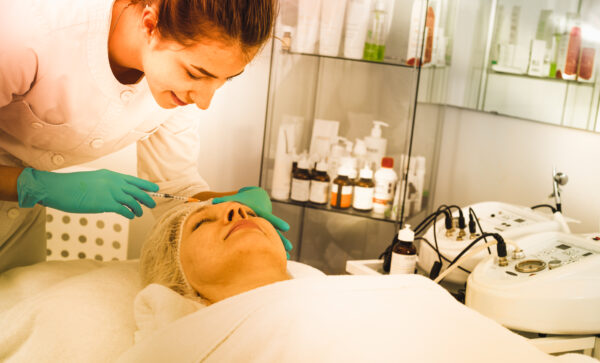
A number of issues have been raised about the cosmetic surgery industry, which includes procedures like breast augmentation, facelifts, and chemical peels, including the training of doctors and nurses, the effectiveness of advertising, and the safety of patients’ mental health.
Botulinum toxin injections (like Botox) and chemical peels, which can be administered by non-medical professionals (like estheticians), pose a potential risk.
Veterinarians may be able to inject Botox because of their extensive knowledge of animal anatomy and physiology, but further regulation of this practice is warranted and will be determined by a review.
There is a widespread practice of botox injections by people who lack the necessary training. It’s important to examine how we can guarantee that all Botox injectors are properly trained and certified.
Within the Industry
Non-invasive procedures (like dermal fillers, chemical peels, botox injections, and laser hair removal) account for roughly 90% of all cosmetic procedures performed annually. In fact, they’re responsible for 74% of the industry’s total worth.
It is being reviewed to see if there should be better methods of monitoring the performance of “non-healthcare professionals,” such as beauticians, who perform many of the procedures that fall under the cosmetic surgery umbrella.
Furthermore, a recent survey found that many individuals worry more about the financial implications of receiving care than they do about the competence of the medical professionals providing it.
Two-thirds of the 1,762 people surveyed by the Department of Health said that price was an important factor in their decision to have cosmetic surgery, while only half said the same thing about the surgeon’s credentials.
Even though many parts of the industry are well-run and honest, “shady practices” do exist and need to be fixed.
The cosmetic surgery market is now under the microscope due to the recent issues with PiP breast implants. Concerns have been raised about the lack of oversight in the industry, such as whether or not all practitioners meet minimum standards for competency, the quality of advice given to clients before they make any financial transactions, the prevalence of aggressive marketing, and how well clients are protected if something goes wrong.
Many would-be patients of plastic surgeons fail to grasp the gravity of cosmetic surgery or the long-term consequences of their decisions. People who opt for surgical or cosmetic interventions need to be better protected, so it’s important to make recommendations to the government in this area.
The following are the main points of emphasis for the review:
- Cosmetic procedure safety standards and product oversight
- the most effective means of making sure that the people carrying out procedures are adequately trained and certified
- how to make sure hospitals and other facilities have adequate post-treatment care structures in place
- what measures can be taken to guarantee that those thinking about cosmetic surgery or procedures are given the data, guidance, and time they need to make an educated decision
- what adjustments need to be made to the complaint process to ensure that customers’ voices are heard and respected
Establishing a Boundary
We must clearly distinguish between cosmetic procedures that are viewed as commodities and cosmetic surgery, which is a serious medical procedure that must be performed by surgeons who have completed their training and meet all necessary qualifications.
Additionally, we support the creation of an obligatory, independent national registry for breast implants and other implantable materials, including those administered via injection.
We would really like for the review to focus on the problem of cosmetic surgery advertising, which is frequently used to take advantage of patients who are vulnerable and seeking cosmetic surgery for psychological reasons. A new, strict code of advertising is urgently required to protect patients if an outright ban is not possible.
Since thirty years ago, everyone has been requesting something similar. The way that cosmetic surgery and non-surgical aesthetics are promoted in the United States needs a complete overhaul.







